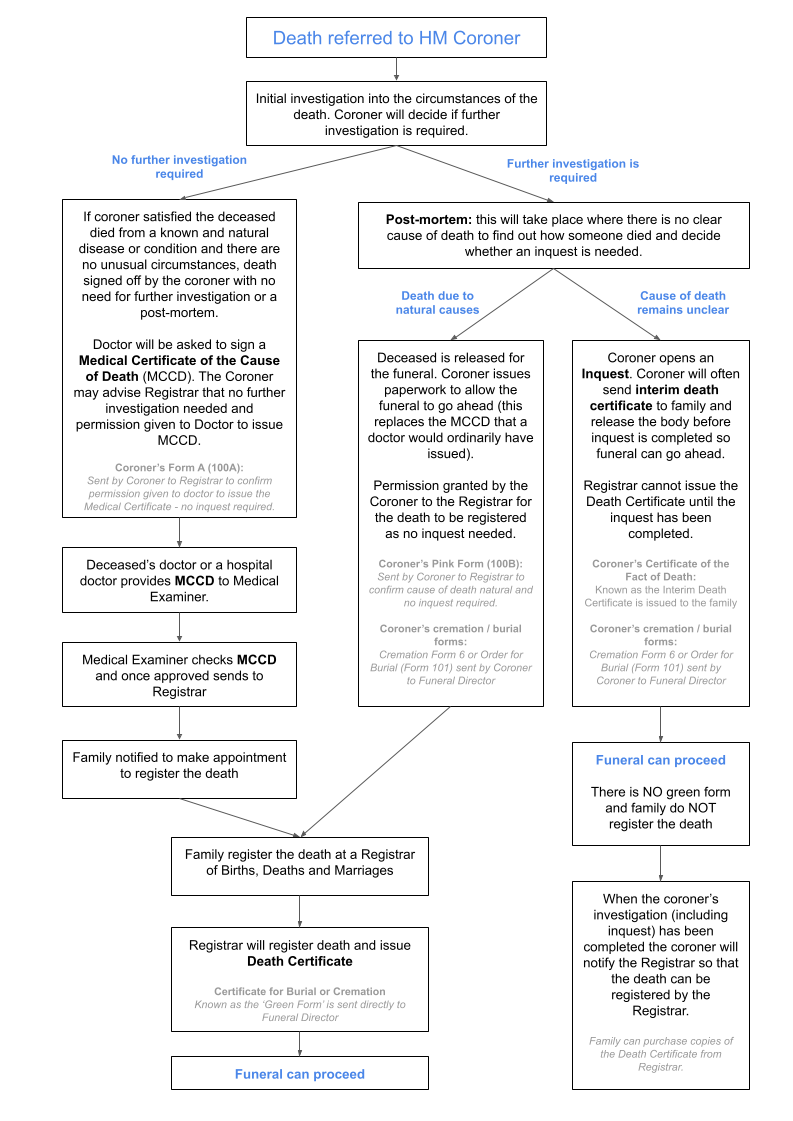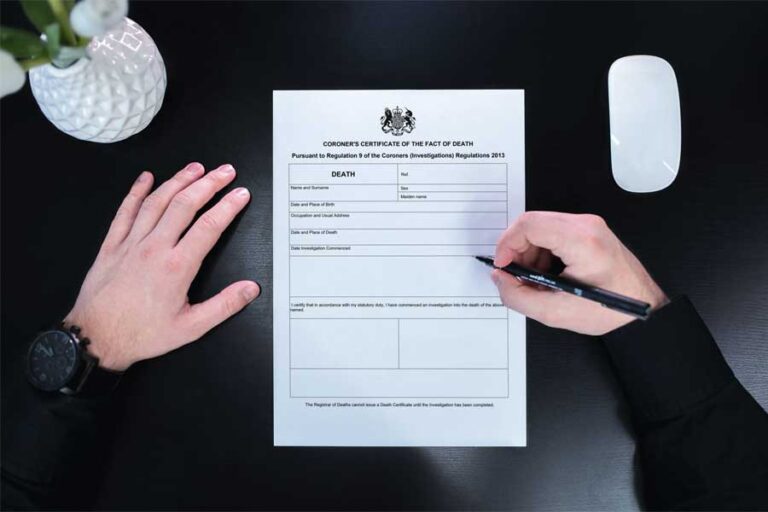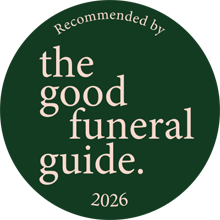Where the cause of death is unexplained, sudden, due to an accident or violent or if the deceased was not seen by the certifying doctor either after death or within 14 days before the death, the death will be reported to HM Coroner.
The coroner will review the situation and decide if further investigations are required. If the coroner decides to investigate the death, the registrar of births and deaths must wait for the coroner to finish the investigation before the death can be registered.
This investigation may take time, for instance if there is to be an inquest, so you should liaise closely with the coroner’s office. But don’t let that stop you from contacting the funeral director as soon as possible, as preliminary arrangements can still be made whilst waiting for the coroner to release the body.
Process for deaths referred to HM Coroner:
IF CAUSE OF DEATH CLEAR
No further investigation required
The coroner will simply ask the hospital doctor, GP or another doctor known to the deceased to issue a cause of death certificate (this usually requires the doctor to have seen the deceased within the final 14 days of life and know a cause of death).
In this scenario, the family will collect the Medical Certificate of the Cause of Death (MCCD) from the doctor or hospital and proceed with registering the death with the Registrar of Births, Deaths and Marriages. The Coroner’s Office will usually send a supporting document called an ‘A’ form directly to the Register Office to confirm that no further investigations are required.
The registrar will then issue the Certificate for Burial or Cremation (also known as the Green Form) and send it directly to your chosen funeral director.
IF CAUSE OF DEATH UNCLEAR
Post-mortem examination
The coroner will decide to investigate the case further, initially by way of a post-mortem examination. If this shows that the death was due to natural causes, the Coroner will release the body once no further examinations are needed and issue the paperwork for the funeral.
The family will not collect a Medical Certificate of the Cause of Death (MCCD) from the doctor or hospital – instead, the coroner will provide details of where and when to register the death. If the body is released with no inquest, the coroner will send a form (a Pink Form called a Form 100B) to the registrar.
For cremations, the coroner will issue Cremation Form 6. The coroner will also issue Cremation Form 11 (‘Certificate After Post-Mortem Examination’) they will submit to the crematorium.
The Registrar will then provide the Certificate for Burial or Cremation (Green Form).
Coroner’s Inquest
If the post-mortem examination proves inconclusive, the coroner will open an inquest to establish the cause of death. The coroner will often send an interim death certificate (Coroner’s Certificate of the Fact of Death) to the family and release the body before the inquest is completed so that the funeral can go ahead.
The family will not go to register the death, as the registrar cannot issue a death certificate until the investigation has been completed, so there is no Certificate for Burial or Cremation (Green Form) issued in this case.
When the coroner’s inquest has been completed the coroner will notify the registrar so that the death can be registered by the registrar. The family can then purchase copies of the death certificate from the registrar.
Visual guide to the process:

At White Rose Modern Funerals we help guide families through the process for when a death has been referred to HM Coroner. We will liaise directly with the Coroner’s Office and work to ensure that the funeral can go ahead with the minimum delay possible. For more information about arranging a funeral involving a referral to the coroner please call us on 020 3281 1045.



